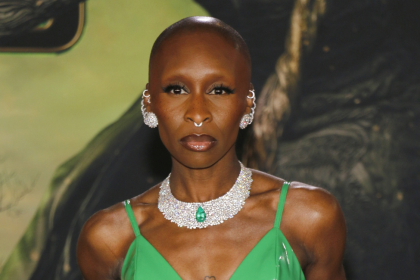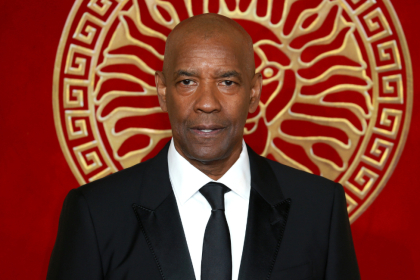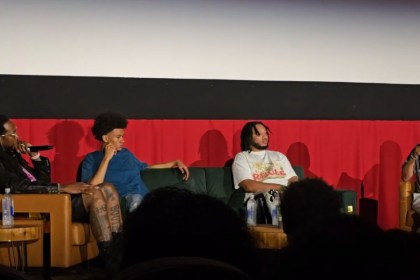Dear White People opens in theaters this week and the indie comedy has drawn early praise from fans and critics, while also courting a certain amount of controversy. A movie about the black experience with white privilege is bound to make some people uncomfortable, but writer-director Justin Simien explained to rolling out that the story comes from a real place and needs to be told. Following four students at the fictional Winchester University, Dear White People was born out of Simien’s desire to examine racial dynamics in the annals of higher education.
“It really began for me during my college experience,” Simien shares. “I was having these conversations with my friends that weren’t being had at large, culturally. We were hanging out after a black student union meeting and started musing — were we just friends with certain people because we’re black? We started talking about race and school and I thought, why isn’t this a movie? Why isn’t it in the culture?”
So Simien decided to tell his story. And the aspiring talent wanted to help fill a void that he felt was growing in black cinema.
“At the time, 2005, black film was very narrow,” Simien says. “It was a kind of black experience that I couldn’t relate to at all. I sort of longed [for] movies that dealt with people of color that had a more art house, complex sensibility to them. Movies like Do the Right Thing and Hollywood Shuffle and Boyz N the Hood — and it really kind of started there.”
Working on a script led to Simien’s first draft of the project, then called Two Percent. The story evolved into Dear White People and Simien has watched the project go from imagination to realization. He understands that there has been some pushback against the film and it’s subject matter ever since the trailer premiered online — and he understands where that pushback comes from.
“One of the stages of awakening to one’s white privilege sort of begins with anger and denial,” Simien says. “It’s the natural stages of grief almost, about racism in this country. Unfortunately, some white people are in the first stage for the very first time in their lives, when encountering the trailer for the film. I’ve embraced that as part of the process. The vast majority of people who encounter the film have a very positive reaction. We raised $50,000 and half of our fans were white. I think a lot of people are primed for the conversation and some aren’t. Maybe they’ll never see the movie and maybe they’ll never progress any further in terms of understanding the true nature of racism in this country.
“But I don’t think you have to be black to see the movie or to enjoy it. Ultimately, I’m a storyteller and I’m trying to say something about the human condition. Everybody struggles with identity at some point in their lives, but I’m able to talk about it from my unique perspective.
“I’m a lover of film, I don’t think I missed anything when I saw Her — I don’t think I have to be white or live in the future. I don’t think I have to be Jewish to enjoy Annie Hall. And I don’t think it’s any different with my movie.”
















